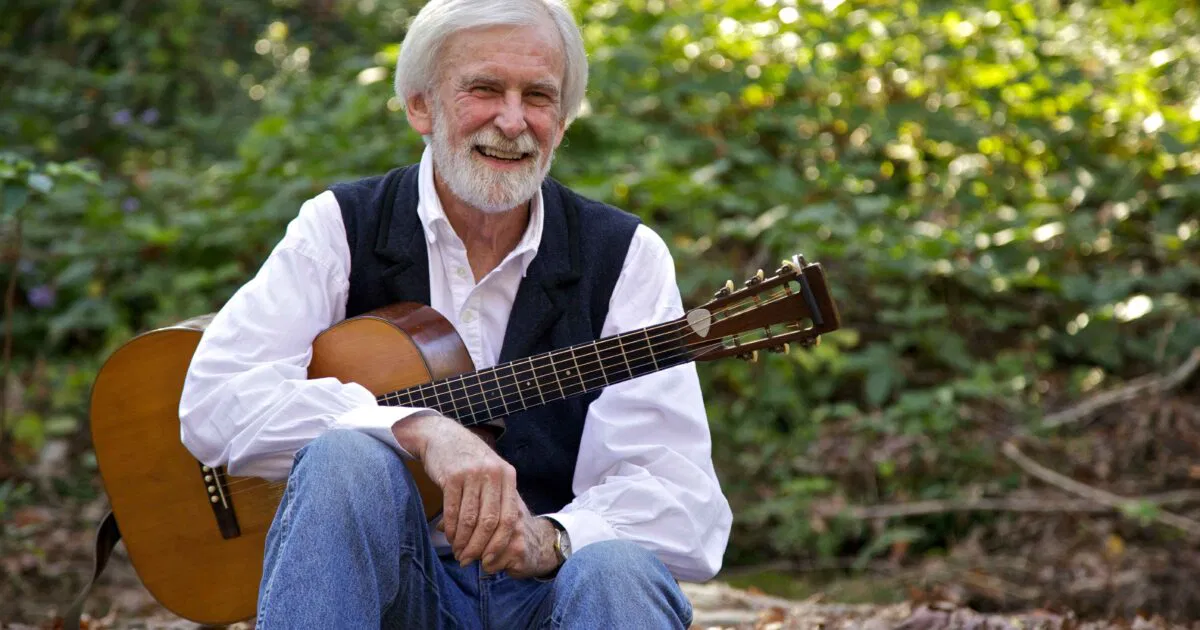My Alabama Story | By Bobby Horton
#MyAlabamaStory #AHAat50 | November 15, 2024

My love of Alabama’s history and music come with deep roots. I was born in Alabama in the middle of the 20th century to an Alabama dad and an Alabama mom. My ancestors, both paternal and maternal, came to Alabama in the early 19th century. I married an Alabama girl whose family came to Alabama in the early 19th century as well. We have lived and raised two children here, and now have two Alabama grandchildren.
Being a baby boomer, I was raised by the World War II generation. It seemed that most adult males in my life were veterans and these Alabama heroes would often tell me their war stories. When they shared their experiences with me, it eventually became clear to me that history is most often made by common folks dealing with problems that are often not of their own making.
When I was a child, I listened to my father’s 78 RPM records. I listened to jazz and big band music, including the music of Alabamians Erskine Hawkins and Nat King Cole, plus the country music of Hank Williams and The Delmore Brothers. My paternal grandmother from Birmingham was a classically trained pianist and church organist; my maternal grandfather from Clay County was an old-time banjo player who shared his love of old country music, scared harp, and gospel music. With my Dad’s old trumpet, I had the opportunity to join the elementary school band in the fifth grade. I have been a musician ever since.

In 1972, armed with a Samford degree in accounting and economics, I began a six-year stint in the corporate world while playing music on the side. Thanks to the kindness and support of many wonderful people, I and my fellow members of Three On A String left our day jobs to work full-time in the music business. This move allowed me to find many opportunities to combine my love of history with my love of music.
In 1985, Milton Bagby, an Alabama film producer, hired me to do the music for his film set in the 1860s. On a quest for authentic period music in the Southern History Room of the Birmingham Public Library, I discovered at least a hundred pieces of original sheet music from the mid 19th century. The discovery of this music eventually led me to a career of recording, producing, and marketing recordings of historical music, while also arranging, playing, and recording music for historical documentary films. I have since traveled around the country sharing these songs with their backstories in a concert-lecture format.

I have learned so much about our ancestors through their music. Prior to Mr. Edison’s invention of the recording machine, if people wanted music, they had to make it themselves. They sang songs about the things that really mattered to them. Their songs were often used by parents to teach their children: this is who we are, this is what we believe, this is our history, and these are our heroes.
Our ancestors sang about all aspects of life in Alabama. They used music to have silly fun, to dance, to make fun of themselves or others. These songs also spoke of home, family, daily life, love, hope, faith, and death. Alabamians who were enslaved were singing spirituals like “Didn’t My Lord Deliver Daniel” — a song that says if the Lord got Daniel out of the lion’s den, he can surely get me out of the terrible situation I’m in. During the Civil War, soldiers from Alabama sang about their experiences, their hardships, their reckoning with suffering and death, and their dream of going home. These songs go straight to the heart of men who were caught up in the whirlwind of total war.
Today, through my own travels, I have learned that America is an incredibly beautiful country with warm, wonderful people everywhere you go. Still, there’s nothing like the feeling I get when heading home and I see the sign that says, “Welcome To Alabama The Beautiful!” In spite of our warts and our problems, our history and our songs show how far we have come. Yes, we are still a work in progress, but in our music, I hear hope for our future.
Bobby Horton lives in Birmingham and is a multi-instrumentalist, composer, producer, and music historian. He has produced and performed scores for 19 PBS films by Ken Burns, including The Civil War, Baseball, and The Roosevelts, along with 23 films for the National Park Service. Horton is an Alabama Humanities Fellow. He and his Three on a String bandmates (of 50-plus years!) are also inductees of the Alabama Music Hall of Fame.

#MyAlabamaStory #AHAat50
February 21, 2024
I spent much of my childhood hung up on where I lived, or rather, trying to explain to others exactly where I resided. My house was situated in an undefined...